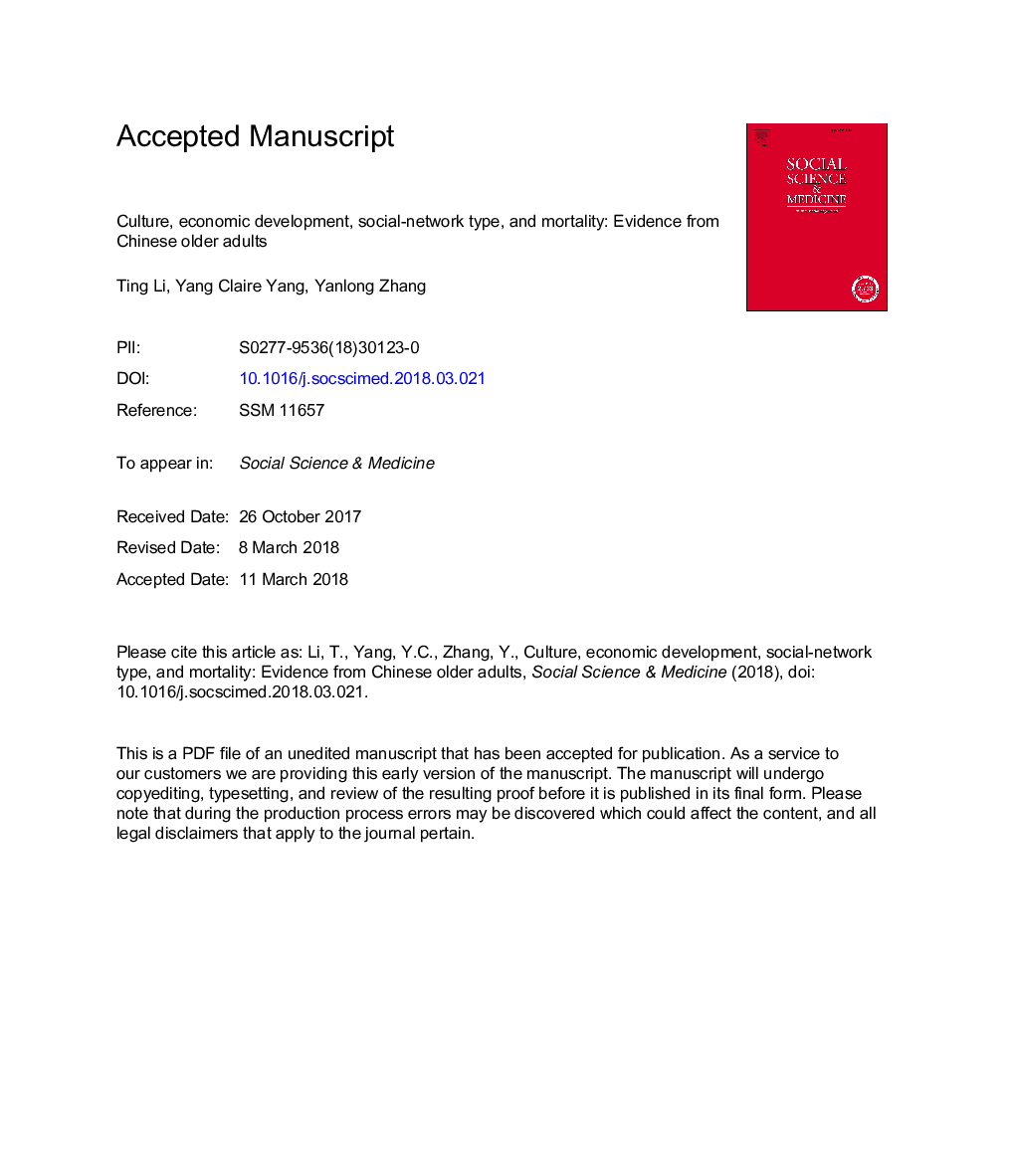| Article ID | Journal | Published Year | Pages | File Type |
|---|---|---|---|---|
| 7327979 | Social Science & Medicine | 2018 | 36 Pages |
Abstract
This study examined the patterns of social-network types and their relative survival benefits among Chinese older adults. We examined how macro-level social factors such as cultural norms and unbalanced regional economic development shaped older people's network behaviors, and whether these factors could moderate the association between network types and mortality. Using data from the Chinese Longitudinal Healthy Longevity Survey (2008-2014), we identified four network types-diverse, friend-focused, family-focused, and restricted-based on individuals' social network measures. Multinomial logistic analyses revealed that older people situated in an area with a deeply rooted family culture or a more advanced economy tend to be less likely to enroll in a diverse network than a family-focused one. This prevents them from achieving the best adaptive survival, as Cox regression analyses showed that the family-focused network type was less beneficial than the diverse one for the survival of older adults. Furthermore, while the survival advantage of the diverse-network type over the family-focused type did not change with cultural contexts, economic development attenuated the deleterious effects of the friend-focused network type.
Related Topics
Health Sciences
Medicine and Dentistry
Public Health and Health Policy
Authors
Ting Li, Yang Claire Yang, Yanlong Zhang,
